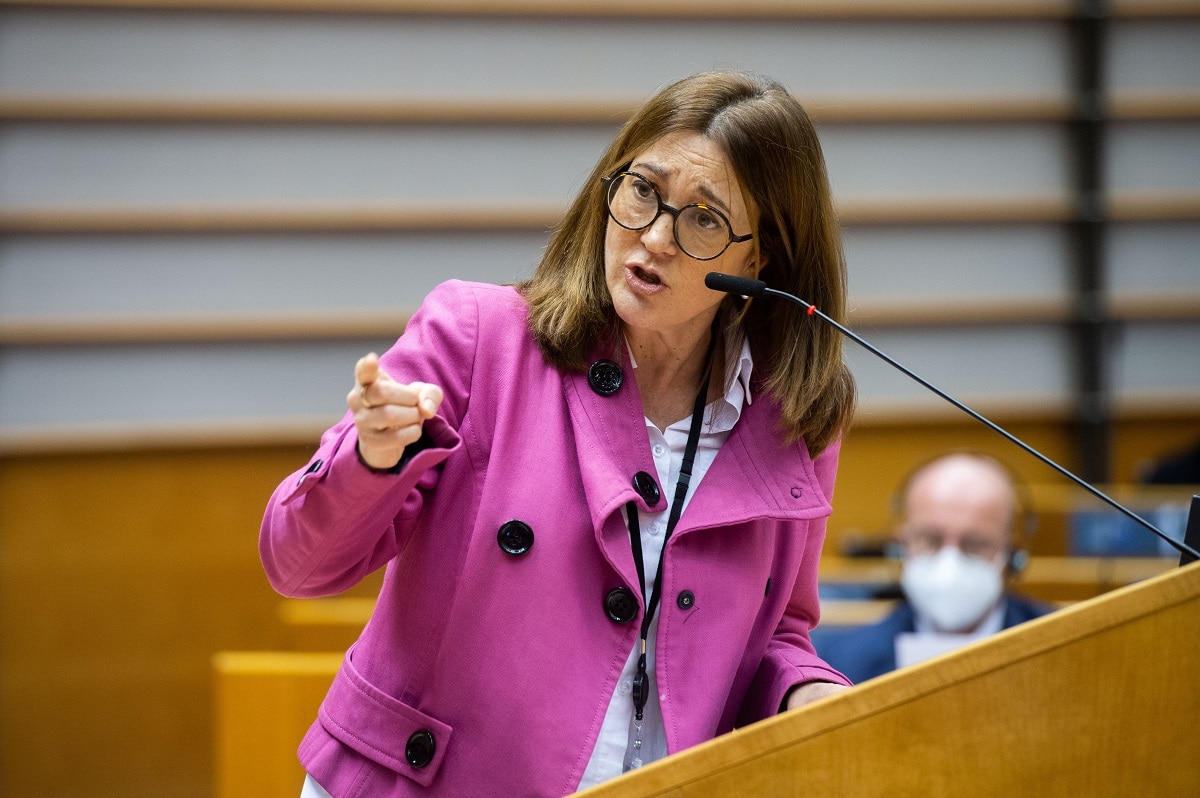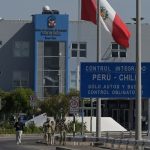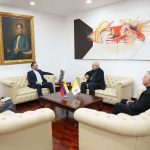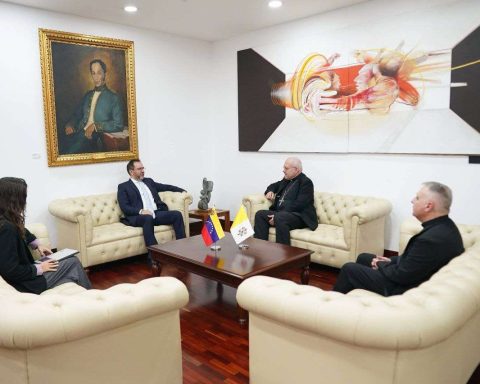The Spanish MEP Soraya Rodriguez Ramos assured that the European Union (EU) will not stop demanding the release of political prisoners and the end of the repression in Nicaragua, despite the fact that the regime of Daniel Ortega and Rosario Murillo expelled the head of the European delegation in Nicaragua, Bettina Muscheidtand the rupture of diplomatic relations with the Netherlands.
“No measure adopted by the regime against the European Union or its member states is going to change the position of the European Union,” said the MEP in an interview with the program Tonightwhich is broadcast on YouTube and Facebook Live, due to the censorship of the dictatorship.
Rodriguez, one of the most critical voices within the European Parliament against the Ortega and Murillo regime, he explained that the position of the EU is: “cessation of repression, the immediate release of political prisoners and that all journalists, human rights defenders and civic organizations, who have had to leave the country for disagreeing, they can return so that the only possible dialogue can begin, which is dialogue between Nicaraguans.”
He said that “the European Parliament is going to maintain support for the people of Nicaragua. We have condemned the regime of Ortega and Murillo as one of the worst dictatorships in Latin America, but at the same time we want to be close to the people of Nicaragua, who are the ones who are suffering this repression.”
“The situation of repression by the regime is already, also, a humanitarian situation because broad layers of the population are in a situation of enormous need, of lack of basic services, such as health. Therefore, the European Parliament is going to be there”, he added.
Nicaragua, priority on the EU foreign policy agenda
The Spanish politician stressed that, from the European Parliament, they will continue “placing Nicaragua, as a priority, on the foreign policy agenda of the European Union.”
“Possibly Ortega and Murillo did not expect that from the European Union, specifically from the European Parliament, with a certainly complex foreign policy agenda, Nicaragua would continue to be part, plenary session after plenary session, of the European Union’s foreign policy priority. ”, commented Rodríguez, a member of the Renovar Europa parliamentary group.
“The European Parliament has placed Nicaragua as a political priority on the foreign policy agenda. We have debated and approved resolutions condemning and denouncing the spiral of repression of the Nicaraguan regime.”
Since 2018, MEPs have approved eight resolutions on the Nicaraguan situation. One in May 2018; another in March 2019 —after the visit of a delegation of MEPs to the country—; a third in December 2019; a fourth in October 2020; the fifth in July 2021; the sixth in December of the same year; the seventh last June; and the last one last September.
On September 15, a large majority of the European Parliament passed a resolution on Nicaragua, “particularly the arrest of Bishop Rolando Álvarez.” In it, the MEPs ask the regime to release all political prisoners “immediately and unconditionally” and “that all judicial proceedings against them and the sentences imposed be annulled.”
Wait for a response from the European Union
Rodríguez recalled that, in the field of diplomatic relations, “the principle of reciprocity exists”, although he did not want to anticipate what the European bloc’s response will be.
The EU High Representative for Foreign Affairs and Security Policies, Josep Borrell, announced last weekend that will respond in a “firm” and “proportionate” manner to the “hostile” and “unjustified” actions of the Nicaraguan regime.
“We are going to wait for what the European Union will adopt. The high representative will communicate the decision of the 27 in relation to this unilateral and clearly unjustified decision of the Nicaraguan regime”, he stressed.
“We are —he continued— a democratic organization and we adopt our decisions through debate and the configuration of a joint will. This response, which the Nicaraguan regime will undoubtedly have, It will also be in line with what the European Union has been maintaining”.
“We have a long way to go in sanctions, in diplomatic channels and in restrictive measures, from the economic point of view, and we are going to go through it. We are going to maintain the political pressure, the clear condemnation and the demand for an end to the repression in Nicaragua”, he stressed.
“I believe,” he continued, “that cooperation with the rest of the countries and international institutions is very important to achieve the objective of ending the repression and starting the road to democracy for the people of Nicaragua.”
Reaction of the regime to European sanctions
For the MEP, the expulsion of Ambassador Muscheidt “is marked because the European Union has been adopting decisions that have gone directly to the core of this regimewhich is the subject of the personal sanctions directed against Murillo herself and the children of Ortega.”
The EU has sanctioned more than 20 senior officials of the regime, including Vice President Murillo, accused of human rights violations in Nicaragua. Those sanctioned have their assets immobilized and, in addition, EU citizens and companies are subject to the prohibition of making funds available to them.
“Corruption is what sustains this dictatorial regime, and the sanctions requested by Parliament against Murillo, against the family, against the children of Ortega, are doing a lot of damage to the regime,” he commented.
In June 2021, a majority of the European Parliament asked international organizations track the money of the orteguista regime in the worldto protect the international financial system “against the illicit operations of the Ortega-Murillo regime and its collaborators.”
Likewise, at the beginning of last June, the European Parliament approved a resolution in which they demand that the EU sanction fourteen judges and three magistrates of Appeals.
“We have a broad diplomatic response capacity, and we also have the capacity to continue pressing for the repression in Nicaragua to cease. This is the objective at the moment, that the repression ceases and that the political prisoners be able to leave the prisons of Nicaragua,” Rodríguez indicated.

















